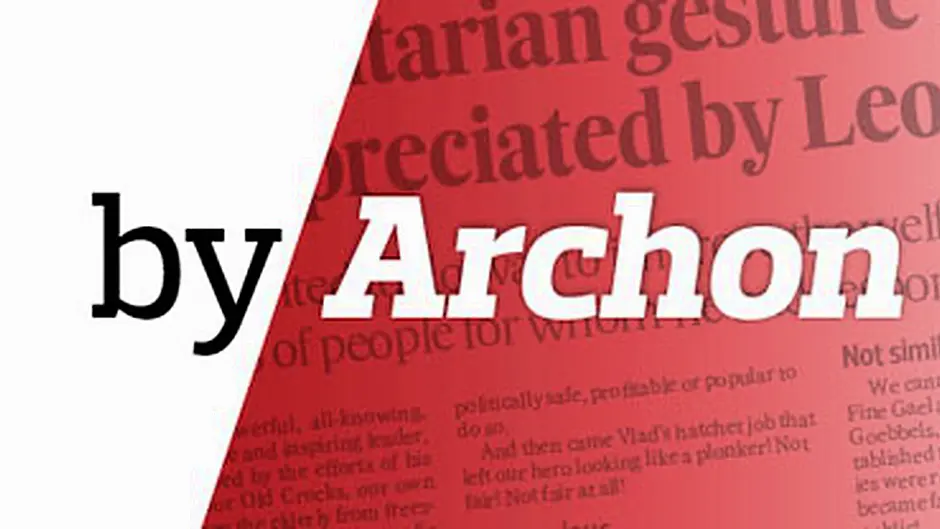The Belfast-Good Friday Agreement contains structures and institutions which can, if strengthened, help to protect the British-Irish relationship in a post-Brexit era
The Belfast-Good Friday Agreement contains structures and institutions which can, if strengthened, help to protect the British-Irish relationship in a post-Brexit era
FROM the late 1950s, the Irish political trajectory shifted when a new generation of Irish leaders looked outward and sought to engage with neighbours, near and far. Moves to join the then European Economic Community (EEC) mirrored those being contemplated by British leaders. Irish and UK accession to the EEC on January 1st, 1973 coincided with the intensification of the ‘Troubles’ in Northern Ireland.
Over the decades which followed, difficult and fraught relations between Ireland and Britain slowly gave way to more constructive, co-operative and cordial links. From the 1980s, the peace process saw the relationship gradually evolve from being fractious to functional, and then friendly. The change in tone, tenor and substance of British-Irish relations grew out of a peace process which stabilised Northern Ireland, and institutionalised both North-South and East-West relations.
The relationship between Ireland and Britain arguably reached its zenith when Queen Elizabeth II made a state visit to Ireland in 2011. The positive reception she enjoyed would have been utterly unprecedented just a few short years previously. The British monarch’s visit encapsulated and symbolised a new and decidedly positive era in British-Irish relations.
This period of conciliation however, was dealt a blow in June 2016 when the UK electorate voted to leave the EU. The result of the referendum was largely greeted with shock and dismay around Europe and beyond; sentiments which were felt most profoundly on these shores.
There were other reactions in Ireland too. Strong reactions, which were focused not just on how Ireland might be impacted by Brexit at a macro-level, but more poignantly on what this decision would mean for relationships and friendships between North and South, and between the two islands.
Sense of sadness
There was a deep sense of sadness that this event might mean a form of detachment from families and friends across the Irish sea. A sense of disappointment that the bilateral rapprochment of recent years could be undermined by this referendum decision. A sense of regret that the vote signalled an end to the UK and Ireland’s shared collective futures within the European Union. A sense of fear that the peace and prosperity which had been won, hard-won, in Northern Ireland might now be threatened by the unknown dynamics of Brexit. A sense of unease about the broader economic, political, social and constitutional implications of the UK exit from the EU.
Ireland and the UK now face altered futures. The two neighbouring states are embarked on different political journeys guided by different agendas and priorities. There is a stated desire on the part of both states to protect the bilateral British-Irish relationship, and to work to respect the terms of the Belfast-Good Friday Agreement. The actualities and contingencies of Brexit, however, are making such promises difficult to honour.
Socrates is credited with saying: ‘Be slow to fall into friendship; but when thou art in, continue firm and constant.’ It would be deeply regrettable if the transformed British-Irish relationship of recent years were to be a casualty of Brexit. It will undoubtedly be challenging to protect the richness of the existing relationship, but there are ways in which the vitality and depth of relations can be maintained.
The institutions created by the Belfast-Good Friday Agreement – namely the North-South Ministerial Council and the British-Irish Council – provide a basis for nurturing cross-border and cross-national relations. The restoration of the Northern Ireland Assembly and Executive, however, are vital in terms of allowing these institutions to operate effectively. Moreover, the British-Irish Council has not achieved its full potential to date.
The Irish government and the governments of the devolved administrations have demonstrated greater commitment to the British-Irish Council than the British government has. There is a strong case to be made for strengthening high level British engagement with this structure post-Brexit. It offers a necessary space for multi-lateral dialogue and discussion on issues of mutual interest when the UK and the EU part ways.
Has not met
The Belfast-Good Friday Agreement also created the British-Irish Intergovernmental Conference to allow the British and Irish governments to consider non-devolved Northern Ireland matters. The institution has not met since 2007. Here again, there has been a lack of political willingness to operationalise its capacity and potential.
However, there is now a strong rationale for reviving the institution. It is an important venue for facilitating discussions between the two governments when the EU no longer provides such a setting. The work of the British-Irish Parliamentary Assembly, which brings together parliamentarians from Ireland and Britain, may also benefit from greater intensification after the UK leaves the EU.
Brexit implies British disengagement and detachment from the EU, but it does not have to mean that Britain’s relationship with Ireland should be subject to the same fate. By harnessing the existing institutional architecture in a spirit of mutual respect and friendship, relations can continue ‘firm and constant.’
• Dr Mary C Murphy is a lecturer in politics in the Department of Government and Politics, University College Cork. She holds a Jean Monnet Chair in European Integration and is an expert on Irish-Northern Ireland relations with the EU. She recently published Europe and Northern Ireland’s Future: Negotiating Brexit’s Unique Case (Agenda Publishing 2018)
ARCHON IS ON LEAVE








